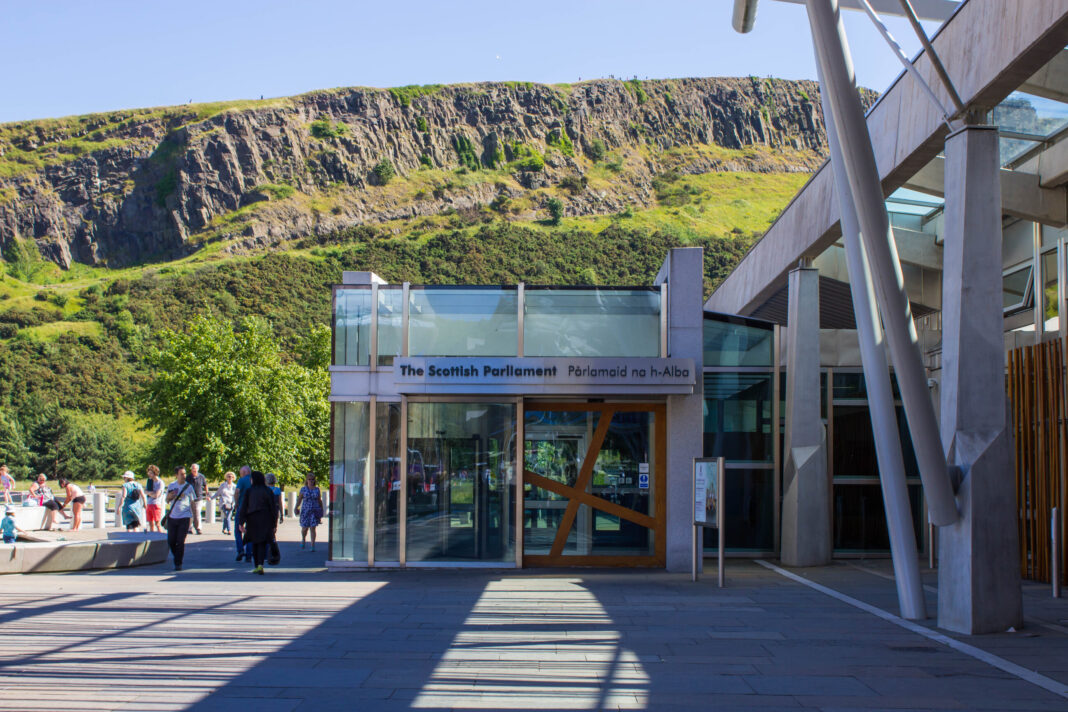
THE Scottish Government has announced it is to invest ‘at least’ £2 billion in infrastructure initiatives.
Finance secretary Kate Forbes revealed the news in the 2022-2023 Scottish budget.
She said the investment will support green jobs and accelerate efforts to become a net zero economy, whilst helping to end Scotland’s contribution to climate change and ensure ‘no one and no region is left behind’.
The finance secretary announced a £150 million investment for walking, wheeling and cycling infrastructure. It comes as the Scottish Government looks to progress its ambitions of creating an ‘active travel nation’, reduce car kilometres and progress towards net zero.
Over £830 million will be invested in affordable housing, progressing Holyrood’s commitment to deliver 110,000 affordable, energy-efficient homes by 2032.
£1.4 billion will be spent to maintain, improve and decarbonise Scotland’s rail network.
£336 million was announced for energy efficiency and low carbon and renewable heat, including £60 million for large scale heat decarbonisation projects.
£123 million has also been committed to protecting and restoring nature, woodland creation and the sustainable management of Scotland’s woodlands.
The first funding allocation of £20 million for the ten-year £500 million just transition fund for the north east and Moray will be made, alongside over £124 million for nationwide employability and training.
Finance secretary Kate Forbes said, “This budget focuses on tackling the climate emergency, reducing inequalities and supporting economic recovery. It is the first budget of this partnership in government and has been development in cooperation with the Scottish Green Party, delivering on commitments made as part of the Bute House Agreement. I welcome their support and their constructive challenge.”
ICE Scotland director Hannah Smith welcomed the commitments across net zero, transport and housing but warned that infrastructure depends ‘not on short-term funding but long-term visions followed by positive action’.
She added, “The 2020s must become the decade of delivery not just to meet our 2045 net-zero target but also to ensure our infrastructure is fit for purpose now, and in the future, so it can continue to improve our places, productivity, health and wellbeing.”

The budget included a relief package worth £745 million for businesses in the retail, hospitality and leisure sectors. However, Kevin Robertson, chair of the Scottish Property Federation, said that it should be extended to support other sectors.
He commented, “Today’s budget offers temporary relief for some of the businesses hardest hit by the pandemic in the retail, hospitality and leisure sectors. However, it does not go far enough to support businesses in other sectors that are entering a further year of business rates liabilities based on pre-pandemic levels of activity.

“Our high streets and city centre economies continue to bear the brunt of the economic shock, and the new variant of Covid-19 will create further uncertainty as we head into 2022. The Scottish Government has missed an opportunity to make business rates in these locations more sustainable by resetting the tax base and incentivising much needed investment.”
Trade body Homes for Scotland (HFS) claimed the budget missed a ‘prime opportunity’ to encourage a consumer shift towards low carbon homes and ‘fails’ Scotland’s would-be first time buyers.
HFS chief executive Nicola Barclay said it is ‘essential’ that environmental factors become a ‘key determinant’ for homebuyers, which is why she described as ‘extremely disappointing’ that a chance to link rates of Land & Buildings Transaction Tax and council tax to levels of domestic energy-efficiency has been missed.
“Also frustrating for the 82% of households in Scotland that would like to own their own home, the Scottish Government abruptly closed its hugely successful Help to Buy main scheme and First Home Fund earlier this year due to a reduction in financial transactions received from Westminster,” Nicola Barclay added. “Now this has been increased by £134m but nothing has been allocated to restore these initiatives, leaving the Open Market Shared Equity scheme, the criteria for which excludes many would-be purchasers, as the only means of government assistance.
“Rather than tackling inequality, I fear this will see the gap between the ‘housing haves’ and the ‘housing have nots’ continuing to grow. Whilst the continuing commitment for affordable housing is to be welcomed, it once again appears that the fundamental role that the private sector has to play in terms of both delivery and wider economic recovery has been overlooked.”








